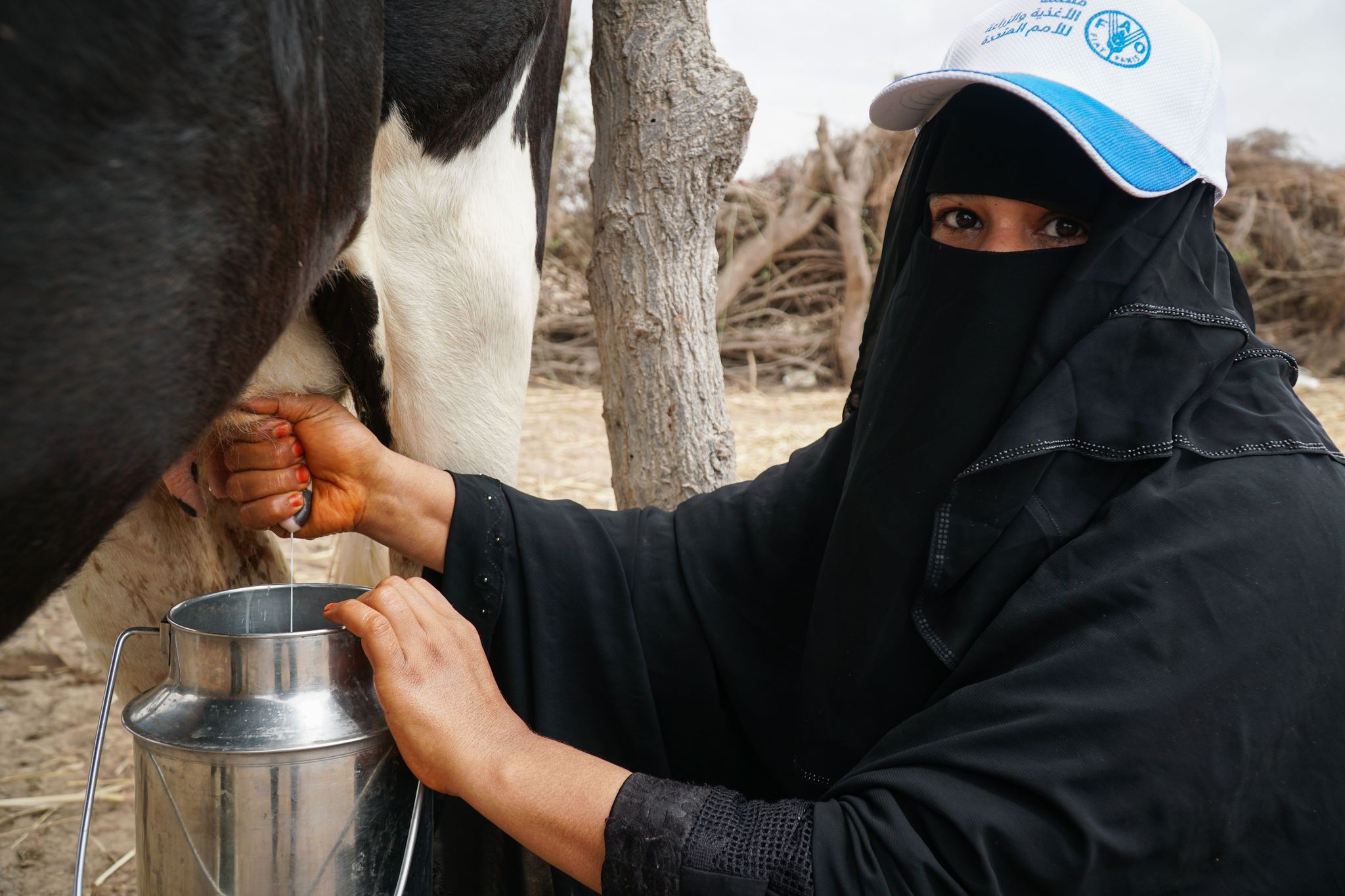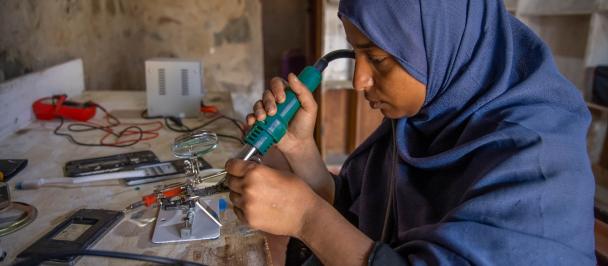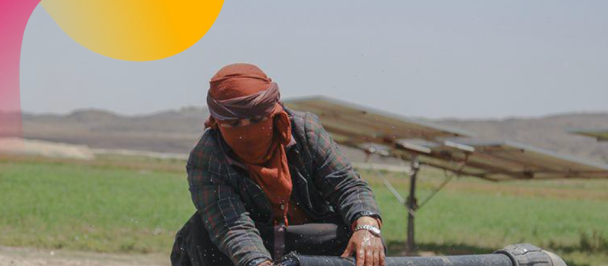ERRY Joint Programme Empowers Women in Yemen's Dairy Industry
From 10 Liters a Day in 2016 to Sustainable Success
April 2, 2023

Belqees Al Shar’abi, community entrepreneur in dairy industry
Belqees Al Shar’abi is a 51-year-old mother of four who lives in Sabr village in Tuban District of Lahj Governorate, Yemen. In an effort to contribute to the household income, Belqees began processing small quantities of dairy products (10 liters of milk per day) along with other female farmers in her village.
When the European Union funded Enhanced Rural Resilience in Yemen ERRY joint programme was introduced in 2016 during its first phase, Belqees saw an opportunity to take their business to the next level. With support from the programme, the dairy processing unit was established, and Belqees and her team were provided with the basic equipment and resources they needed to start their business. The joint programme provided them with training and guidance on how to produce high-quality dairy products and run a successful business.
"We are very grateful to the ERRY joint programme for supporting us during the first phase. They provided us with the basic equipment and resources we needed to start our business. This support has been crucial to our success," Belqees explained.
In 2019, during the programme's second phase which was co-funded by the European Union and Sida, the dairy processing unit received additional support to enhance its operations. This included advanced equipment from FAO to improve efficiency and a solar system installed by UNDP to ensure a dependable source of energy. The ERRY joint programme played a crucial role in the unit's growth by providing the necessary resources to expand its business and extend its reach to more customers.
Belquees explains that "During the second phase of the programme, we received even more support. FAO provided us with advanced equipment that has helped us operate more efficiently and effectively. UNDP also contributed by installing a solar system that ensures we have a reliable source of energy. We are very grateful for this continued support.” She goes on to note that “Providing advanced equipment has streamlined the production process, reduced waste, and improved the quality of the final product. In addition, the installation of the solar system ensures the unit can operate consistently, leading to a steady supply of dairy products and ultimately increasing income”
Today, the dairy processing unit is a thriving business that provides sustainable livelihoods for women in the community. With the continued support of the ERRY joint programme, they have been able to improve productivity, increase their supply of dairy to the local market, and generate income for the most vulnerable people in Yemen.
Belqees and her team have been able to create their own dairy brand called "Baladi," which means "My Country " in Arabic. Today, Baladi products are in high demand and 50 liters of different Baladi products are distributed to different local supermarkets in Lajh and Aden governorate. This is a testament to the hard work and determination of Belqees and her team, as well as the impact of the ERRY III joint programme on supporting sustainable livelihoods and promoting food security in Yemen.
Belqees is a strong advocate for women's rights and empowerment. She is eager to receive more support during the third phase of the ERRY joint programme (2021 – 2025) to expand their business and ensure its long-term sustainability. With consultations and guidance on how to sustain their business, the dairy processing unit can become a model for sustainable businesses in Yemen.
"We are hoping to expand our business and reach even more customers. We are confident that with the right support, we can achieve our goals and make a positive impact on our community."
Belqees and her fellow farmers are an inspiring example of how women can take the lead in creating sustainable solutions to the challenges facing their communities. Despite the obstacles they have faced, they have shown that with determination and support, they can achieve their goals and make a positive impact on the lives of those around them.
"The programme has not only brought economic change but also social change by empowering women to become entrepreneurs and contributing to the development of our society."
The success of Belqees and the dairy processing unit in Sabr village is just one example of the positive impact the ERRY joint programme has had on the lives of vulnerable people in Yemen. The programme has been made possible through the funding of the European Union and Sweden, and the hard work of four UN agencies: UNDP, WFP, FAO, and ILO. Through their collaboration, they have been able to enhance the livelihoods, food security, and resilience of many people across different governorates in Yemen. As we look towards the future, it is clear that the continued support and the determination of women like Belqees will be vital in creating a brighter future for Yemen.

 Locations
Locations




